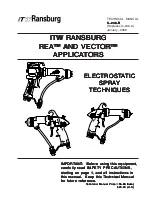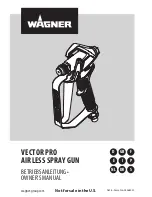
Operation
Note:
Determine the left and right sides of the
machine from the normal operating position.
Before Operation
Before Operation Safety
General Safety
•
Never allow children or untrained people to
operate or service the machine. Local regulations
may restrict the age of the operator. The owner
is responsible for training all operators and
mechanics.
•
Become familiar with the safe operation of the
equipment, operator controls, and safety signs.
•
Shut off the engine, remove the key (if equipped),
and wait for all movement to stop before you leave
the operator’s position, Allow the machine to cool
before adjusting, servicing, cleaning, or storing it.
•
Know how to stop the machine and shut off the
engine quickly.
•
Check that operator-presence controls, safety
switches, and guards are attached and functioning
properly. Do not operate the machine unless they
are functioning properly.
•
If the machine does not function correctly or is
damaged in any way, do not use the machine.
Correct the problem before you operate the
machine or attachment.
•
Ensure that the operator and passenger areas are
clean and free from chemical residue and debris
buildup.
•
Ensure that all fluid line connectors are tight and
that all hoses are in good condition before applying
pressure to the system.
Fuel Safety
•
Use extreme care in handling fuel. It is flammable
and its vapors are explosive.
•
Extinguish all cigarettes, cigars, pipes, and other
sources of ignition.
•
Use only an approved fuel container.
•
Do not remove the fuel cap or fill the fuel tank
while the engine is running or hot.
•
Do not add or drain fuel in an enclosed space.
•
Do not store the machine or fuel container where
there is an open flame, spark, or pilot light, such
as on a water heater or other appliance.
•
If you spill fuel, do not attempt to start the engine;
avoid creating any source of ignition until the fuel
vapors have dissipated.
Chemical Safety
Chemical substances used in the sprayer system
may be hazardous and toxic to you, bystanders, and
animals, and they may damage plants, soil, and other
property.
•
Read the information on each chemical. Refuse to
operate or work on the sprayer if this information
is not available.
•
Before working on a sprayer system, ensure
that it has been neutralized and triple rinsed
according to the recommendations of the chemical
manufacturer(s) and that all the valves have been
cycled 3 times.
•
Verify that there is an adequate supply of clean
water and soap nearby, and immediately wash off
any chemicals that contact you.
•
Carefully read and follow the chemical warning
labels and safety data sheets (SDSs) for all
chemicals used, and protect yourself according to
the chemical manufacturer's recommendations.
•
Always protect your body while using chemicals.
Use the appropriate personal protective equipment
(PPE) to guard against contact with chemicals,
such as the following:
– safety glasses, goggles, and/or face shield
– a chemical suit
– a respirator or filter mask
– chemical-resistant gloves
– rubber boots or other substantial footwear
– a clean change of clothes, soap, and
disposable towels for cleanup
•
Obtain proper training before using or handling
chemicals.
•
Use the correct chemical for the job.
•
Follow the chemical manufacturer's instructions for
the safely applying the chemical. Do not exceed
the recommended system application pressure.
•
Do not fill, calibrate, or clean the machine while
people, especially children, or pets are in the area.
•
Handle chemicals in a well-ventilated area.
•
Do not eat, drink, or smoke while working near
chemicals.
•
Do not clean spray nozzles by blowing through
them or placing them in your mouth.
•
Always wash your hands and other exposed areas
as soon as possible after working with chemicals.
22
















































